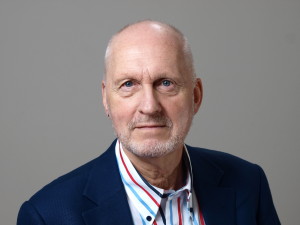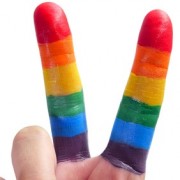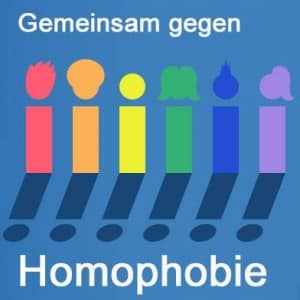You hear about "homophobia" all the time. Here, once again, opponents of the education plan in Baden-Württemberg have made homophobic remarks, there it was someone from the church and somewhere else it was a conservative journalist or politician. But let's be honest: what exactly does homophobia mean? Who can be homophobic and what can be done about it? Psychoanalyst Professor Dr Udo Rauchfleisch explains.

The term homophobia is actually wrong. Because "phobia" means "fear" and hardly anyone will be afraid of gays, lesbians, bisexual and trans* people. Instead, homophobic people have an anti-homosexual attitude. This usually arises from prejudices about same-sex lifestyles and can lead to marginalisation and derogatory remarks or even massive violence against lesbians and gay men. It often exists beneath the surface and becomes visible in certain situations. Somewhat reassuringly, even though the topic is currently very present, homophobia has not increased significantly.
The contradictory thing about this is that homophobic people themselves often say that the number of homosexuals is small compared to the overall population. Nevertheless, they feel (indirectly) threatened by this small group, partly because in their eyes this group calls into question the existing heterosexual world - such as the traditional roles that gays and lesbians generally do not recognise.
It gets interesting when a homophobe says "I'm not homophobic, but...". In principle, anyone can criticise a person - regardless of whether that person is straight or gay. But then you don't need the first part of the sentence. This phrase is usually used to disguise the second part of the sentence with a negative, homophobic statement.
Gays and lesbians can also be homophobic

It also happens that gays and lesbians have negative images of themselves as gay men or lesbian women. They have internalised this homophobia, so to speak, and it then acts like an "enemy from within". This is known as internalised homophobia.
This can lead to negative self-esteem, shame about one's homosexuality, hiding one's sexual orientation and depression. For example, if someone says "If I were normal ..." or if you feel uncomfortable talking about homosexuality or if you don't recognise yourself as a lesbian or gay person under any circumstances, you should question this. Internalised homophobia can damage your health and lead to physical and mental illness. Anyone experiencing self-esteem crises, depression, anxiety and physical complaints should seek professional help. The lesbian and gay associations know the right people to contact in this case.










